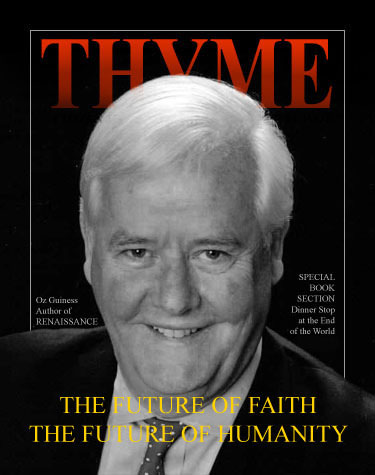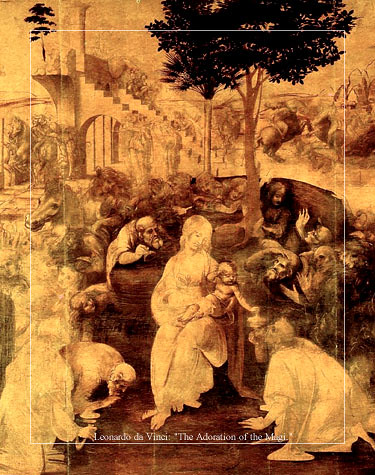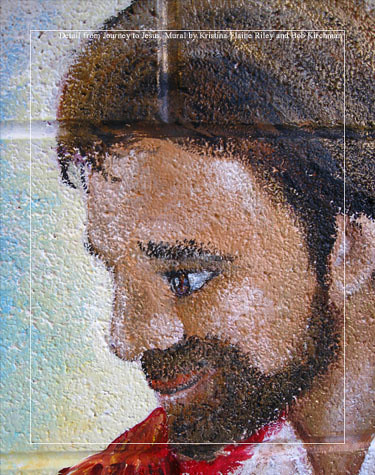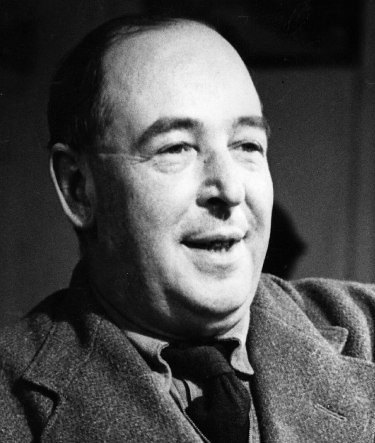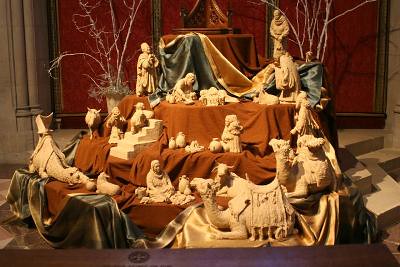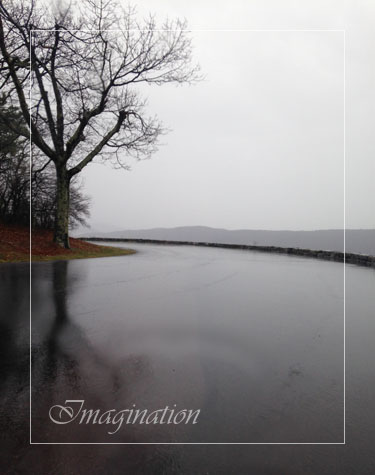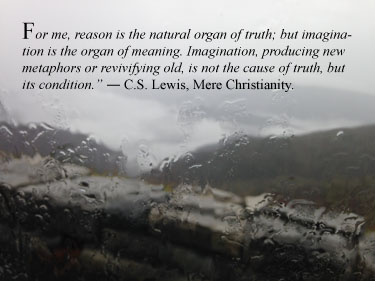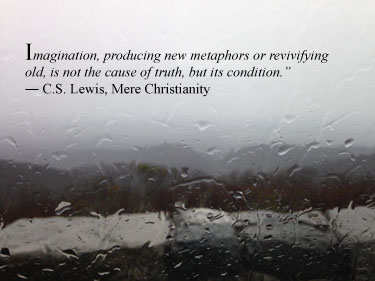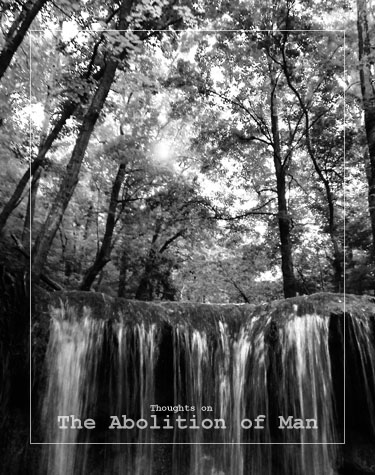Citizen Journalism with a Better Flavor
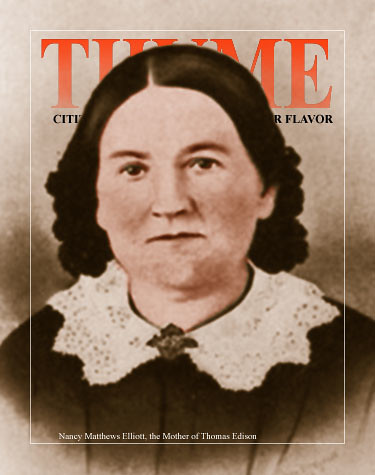 Volume X, Issue XVIIIa
The place of Boundaries
Thomas Alva Edison
Volume X, Issue XVIIIa
The place of Boundaries
Thomas Alva Edison is among the greatest minds of American invention, but had one of his teachers had the final say, the boy, who probably suffered from what we now call
ADHD, might never have made the pages of history. The young Edison was sent to a one room school house where the overworked teacher quickly became exasperated with the boy's inquisitive and energetic nature. She wrote a letter to his mother
Nancy.
Nancy told the boy that the letter said that the boy's school was
"too small for him." He was brilliant and needed education that was beyond their ability to provide. So Nancy took young Thomas out of school and home-schooled him. She taught him Bible and the
"three R's" and his father paid him to read the Classics. The boy grew up to be the great inventor of devices like the phonograph and the light bulb.
Years later, Edison would learn the true content of that letter. The teacher called him
'addled' and essentially unfit for schooling. Fortunately Nancy wisely created a boundary that allowed for her son's success. Thomas Edison's mother knew the place of
boundaries.
The Place of Boundaries II
Years ago , my daughter who was home-schooled in 10th grade, wanted to go to
'real' high school so we let her visit Riverheads High School in Augusta County, Virginia with every intention of sending her there if she liked it.
Midway through the morning, she called me from the school office:
"I am not feeling well, could you come pick me up?"
In the car riding home she explained that a teacher had shown a rather graphic and violent video in a history class... that making us feel that the teachers there did not understand
boundaries. We chose to cross districts to a high school where my daughter had many Christian friends through our church. The principle of that other county high school had a strong sense of the place of parents. He understood boundaries and we found him very responsive to parent concerns and I believe he did create a school culture that reinforced that.
I relate that incident only because I believe that is at the heart of a current situation that is being blown out of proportion by both administrators and troublemakers who want to paint some decent and concerned parents (like my wife and I were) as 'extremists.' Meanwhile, they miss the real issue;
Boundaries.
The issue begins with a World Geography teacher at Riverheads High School requiring the girls in the class to don the hijab and the students to participate in a
'calligraphy lesson' in which the unknowing students copied the statement of affirmation of the Muslim Faith. This would be akin to forcing Jewish students to write the Apostle's Creed. This is not an informational lesson on world religions, this is a requirement to participate in a particular one.
The Place of Boundaries III
Savhanna Herndon,
Who's brother is a student who was forced to participate writes:
No one is naive here, people. Obviously there is a big world out there! Learning of other religions is important. It is necessary. Learning of other religions even makes me feel stronger in my own faith- Christianity.
The problem doesn't lie with learning of other religions. The problem lies with a teacher deliberately handing out an assignment that had a very weighty meaning, knowing good and well what it translated into. The problem lies with a teacher who withheld vital information, causing students of all kinds of faith to go against their values. The problem lies with a teacher betraying the trust of parents and students. The problem lies with a teacher forcing a Christian student to wear a burka, after the student told her that she was not okay with it, and WHY she was not okay with it.
Take religion out of it. Forget about the written statement for a moment. Let's focus on the burka, or hijab, whichever one it was. It is a symbol of oppression. The teacher should have shown pictures of Muslim women in them, or explained why they wear them and what they look like, she could've done both. However, forcing a Christian student to wear one and when they said "no" calling them "racist," is NOT sound teaching. In fact, it's irresponsible and immature. I would not expect a Muslim student to wear a cross while learning about Christianity. Why should you expect a Christian student to wear a head scarf while learning of Islam?
Now, let's go back to the written assignment. By handing out this assignment, Laporte excluded all other religions by making them denounce their "gods." The statement "There is no other God but Allah, and Muhammad is his messenger," carries quite a lot of weight with it, especially for those not of the Muslim faith. I would not expect a Muslim to write John 3:16 or the statement "G-d is Lord. His name is to be praised." I wouldn't expect a Buddhist to do so, and I wouldn't expect a Jewish person to write the statement "Jesus is the Messiah." Why? Because of the freedom of religion, and because the law of separation of church and state. There are boundaries set in place by the school board to avoid sticky situations such as this, and Laporte brought this on herself when she deliberately went against them.
Some of you are saying that my family should have kept quiet, due to the fact that Muslim people could potentially be upset. You're afraid. Why are you afraid? I'll tell you why: the terrorist threat is very real. We have all seen it. You're afraid of this religion, and yet you're okay with sitting back and letting your kids wear hijabs and write such statements. Get over your double standards! "Not every Muslim is a jihad, but every jihad is a Muslim." This statement is something that cannot be ignored. I'm sorry if this topic scares you, but just because you're too afraid to see what's happening around you, doesn't mean it's not happening.
Yes, as Christian people we are to be G-d's light. We are supposed to preach the gospel, but even Jesus Christ flipped a table when they belittled the House of G-d (church). Your feel good "peace and love" Christianity needs to be put in check if it turns you into a doormat. You are to stand up for G-d's will! This is my family standing up, and flipping a table or two. You don't have to like it, but you need to acknowledge it.
C. S. Lewis' childhood included a very traumatic experience at a boarding school. The headmaster beat the boys and after Lewis was removed from that particular institution the headmaster was committed to an insane asylum. Lewis' father had a friend,
W. T. Kirkpatrick, a brilliant teacher, who tutored Lewis and perhaps rescued his academic career. Our point in all of this is that involved parents are to be welcomed into the process as guardians of the boundaries. Unfortunately there are too many modern educators who see their mission as that of
'enlightening' their students
'beyond' their parents. This notion is quite dangerous. Think of the 1930's where German schoolchildren were made to sing praises to Hitler!
In another incident at that same Augusta County high school, another teacher was reported to have shown yet another violent video. The teacher was caught telling the students
NOT to tell their parents about it.
One must conclude that the original group of parents who complained about the Geography
'lesson' are well within their rights, and quite reasonable. One must also conclude that the reasonable oversight of parents is being obfuscated by overreaction by both administrators and certain elements wanting to bring discredit to the original group of parents.
Also present are those who would overreact by making this about more than boundaries. By that I mean those who would blow the issue out of proportion by making more of it than they should. Unfortunately the whole thing has become not unlike the Scopes trials in Dayton Tennessee where
H. L. Mencken, journalist for the Baltimore Sun, was quick to make it a mockery of the Creationist argument as attorneys
Clarence Darrow and
William Jennings Bryan squared off in the case of
John Scopes. Scopes had violated then applicable Tennessee law by teaching evolution in his classroom. The problem came when national reporters moved in to make this about science vs. religion.
Two things came out of Scopes. The popular press, and Mencken in particular, were instrumental in discrediting legitimate discussion of Creation/Intelligent Design in the classroom and a College was founded, named after William Jennings Bryan, which promoted the teaching of much that the popular press had discredited.
It is time to bring the discussion back to concern for the students. It is necessary to keep the process of education open to parental oversight, and when educators step over the boundaries that are reasonable to have in place, it is not only the parents' right, but their duty, to lead their children to those who would be their Kirkpatricks.
Brietbart Has More on this Story [click to read].

